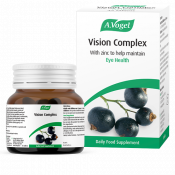An introduction to conjunctivitis
Conjunctivitis is a common condition where the thin layer of tissue covering the front of the eye, known as the conjunctiva, becomes inflamed. This causes redness, discomfort, discharge and sometimes itching. Some people refer to conjunctivitis as ‘pink eye’, because the affected eye is often bloodshot and red.
There are different types of conjunctivitis: infective, allergic and irritant. Infective conjunctivitis is caused by an infection, and this type can be further split into bacterial and viral conjunctivitis. Infective conjunctivitis is usually highly contagious, but allergic and irritant conjunctivitis are not.
If you’re looking for advice on treating conjunctivitis, this can be found on our conjunctivitis treatment page.
What causes conjunctivitis?
The cause of conjunctivitis depends on what type from which you are suffering.
Infective conjunctivitis is caused by:
- A viral infection, such as the common cold
- A bacterial infection, such as a throat or ear infection
- A sexually transmitted infection (STI), such as chlamydia.
Allergic conjunctivitis is caused by typical seasonal, perennial or other allergies such as:
- Pollen (hayfever)
- Dust mites
- Flakes of dead animal skin
- Contact lenses (if the eye loses tolerance to the lens).
Irritant conjunctivitis is caused by a foreign body or chemical coming into contact with the eye. This can be:
- Chlorinated water (such as that in a swimming pool)
- Shampoo
- A stray eyelash
- A piece of dirt
- Smoke or fumes.
Poor makeup hygiene is a common culprit for carrying infections to the eyes or irritating them, causing either infective conjunctivitis or irritant conjunctivitis.
What are the symptoms of conjunctivitis?
There are a number of distinct symptoms of conjunctivitis. Most of these are unpleasant or uncomfortable, but should not be very painful. If you are experiencing pain in your eye this may be a sign of a complication. The common symptoms of conjunctivitis are:
- Eye redness – this is what gives conjunctivitis its nickname, ‘pink eye’
- Eye discharge
- Eyelids stuck shut in the morning
- Discomfort and minor pain
- Eyes may feel gritty
- Eyes may feel itchy
- Eyelids may become swollen.
Some of these symptoms give an indication as to what kind of conjunctivitis you have. For example, clear and watery discharge is normally a sign of viral conjunctivitis, whereas thick, yellow discharge is usually a sign of bacterial conjunctivitis. Finding your eyelids stuck shut in the mornings is also often a sign of viral conjunctivitis. Itchy eyes is usually a sign of allergic conjunctivitis.
There are some symptoms that can arise which normally indicate a more severe case of conjunctivitis, or that the conjunctivitis is causing secondary conditions. These are:
- Severe sensitivity to light
- Severe pain or burning
- Disturbed vision (some blurring is normal because of discharge but this should dissipate with blinking)
- Severe redness.
Depending on the cause of the conjunctivitis, symptoms should clear up within a few days to a few weeks. Allergic conjunctivitis can sometimes last longer, particularly if the allergy is seasonal, such as hayfever. If your symptoms have not cleared up after one to two weeks you should consult your GP, who may be able to prescribe some treatment to speed the process up.
Who gets conjunctivitis?
Anyone can get conjunctivitis, regardless of age or gender. However, there are a number of factors that make you more susceptible to developing conjunctivitis:
- Being very young or very old – these groups of people naturally have weaker immune systems
- Already suffering from blepharitis
- Recently having had a cold – conjunctivitis can be caused by the same virus, and your immune system may also be weaker if you have just recovered from an illness of this kind
- Diabetes – this can weaken the immune system, making you vulnerable to infection
- Taking steroids, as this can also weaken the immune system
- Coming into contact with someone who has recently had or currently has conjunctivitis, as infective conjunctivitis is highly contagious
- People with allergies or a family history of allergies – since conjunctivitis can be caused by allergens, people with asthma, hayfever and eczema are more likely to suffer from this kind of conjunctivitis.
Can conjunctivitis cause any complications?
While it is annoying, unpleasant and uncomfortable, conjunctivitis is rarely serious. In some cases, however, conjunctivitis can cause a number of complications.
- Firstly, if the original cause of the conjunctivitis was an STI then symptoms may last several months – much longer than normal cases of conjunctivitis, which usually clear up within a few days to a couple of weeks
- Conjunctivitis can sometimes lead to keratitis if it lingers. This condition arises when inflammation spreads to the surrounding tissues such as the cornea at the front of the eye, causing thickening and swelling. This in turn, leads to scarring or ulcers, which can affect normal vision
- Conjunctivitis can develop in newborn babies – this is usually not serious unless the conjunctivitis has been caused by coming into contact with the gonorrhoea bacteria during delivery. If left untreated, this kind of conjunctivitis can cause ulcers on the cornea which can lead to blindness.
Treating conjunctivitis
Conjunctivitis is usually treatable at home with some simple self-care techniques. Keeping the eye clean is important, and you can buy eye wash from your chemist or optician for this purpose.
Soaking a cloth in warm, clean salt water and then laying this over your eyes can help soothe irritation, and loosen any discharge around the eye.
The A.Vogel Eye drops can be used while you have conunctivitis. These drops contain Euphrasia, a herb that has been used since the 14th century for eye health. They can help soothe irritation and help to keep the eyes clean by flushing out sticky discharge.
For a more comprehensive guide to treating conjunctivitis at home, as well as some advice on when to seek medical advice, head to our conjunctivitis treatment page.





 Looking for help to ease those dry, tired and irritated eyes?
Looking for help to ease those dry, tired and irritated eyes?

